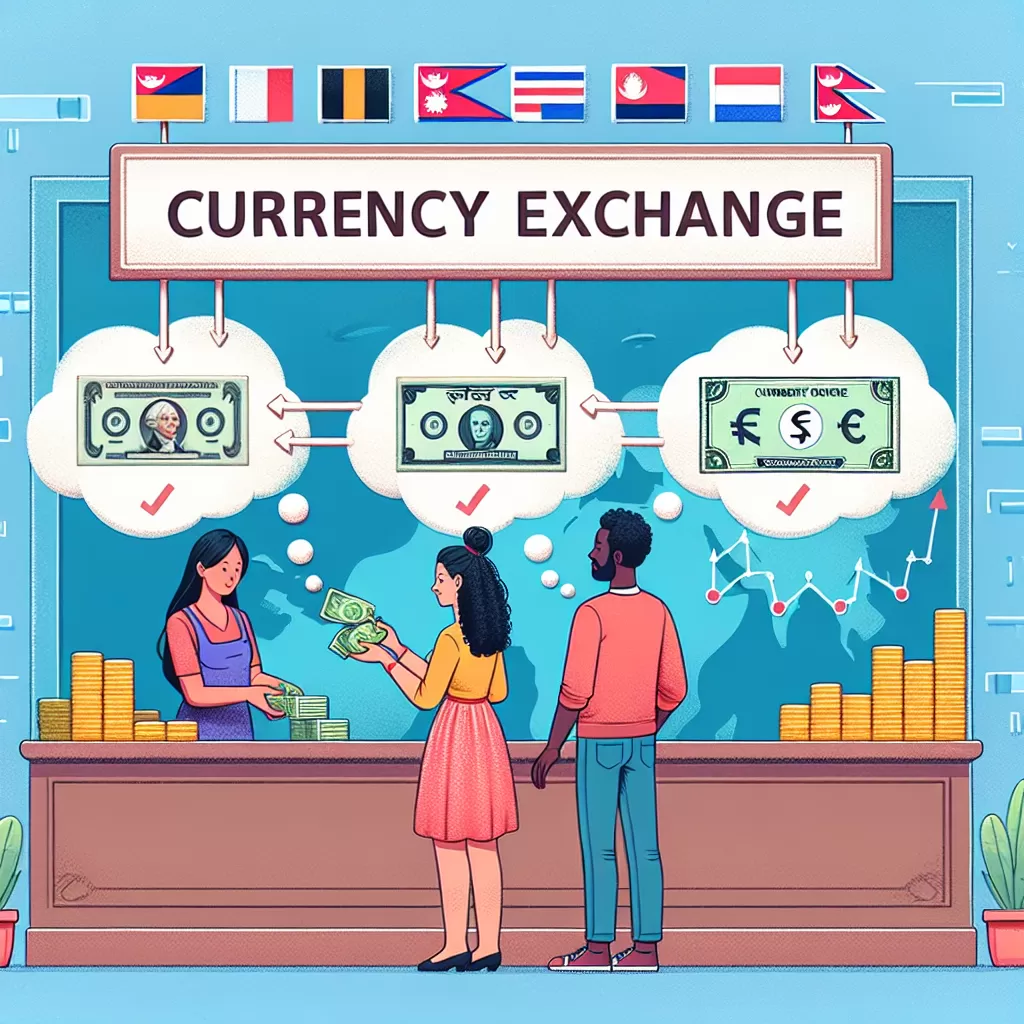How To Exchange Currency In Nepal
Follow Currency Mart April 10, 2024
Where to purchase Foreign Currencies?

Introduction
Exchanging currency in Nepal can seem daunting due to its complex and diverse currency exchange systems. Travelers and business people alike should plan and prepare carefully to get the most out of their money. This detailed guide will break down the various options and the intricate techniques involved in exchanging currency in Nepal.Nepalese Currency: Rupee
The official currency of Nepal is the Rupee (NPR), issued by the Nepal Rastra Bank (NRB). It is subdivided into 100 paisa. Before exchanging currency, familiarize yourself with current exchange rates. Exchange values may vary widely, from street vendors to banks and online platforms.Banks and Financial Institutions
The most reliable places to exchange currency in Nepal are banks and authorized financial institutions. The NRB regulates these institutions, providing a sense of security unavailable with other methods. Major areas such as Kathmandu, Pokhara, and Chitwan have branches of various banks providing currency exchange services.Exchange Bureaus
If you're looking for a faster process, exchange bureaus are your best option. They are conveniently located around major tourist areas and airports. Their rates may not match those at the banks but they provide quick service. Always request a receipt after every transaction.ATMs
ATMs in Nepal accept MasterCard, Visa, and Plus. Most travellers find this method convenient because of its availability. Keep in mind that ATMs have withdrawal limits and may charge higher fees. It is advisable to contact your home bank to inform them about international ATM use to avoid card deactivation.Online Currency Exchange Platforms
The modern age has opened new ways of money exchange. Online platforms provide a convenient and secure option. These include online peer-to-peer exchange platforms, mobile-based transfer services, and cryptocurrency exchanges. However, ensure these platforms operate under appropriate regulations to avoid scams.Card Payments
Credit and debit card payments are accepted in major tourist areas, hotels, and restaurants. But keep in mind, while convenient, card payments often have foreign transaction fees. Ensure you understand these and budget for them.Black Market
While exchanging currency on the black market is illegal and not advised, it is worth mentioning for awareness. Using these often unregulated transactions can lead to fraud, poor exchange rates, and legal consequences.Conclusion
Exchanging currency in Nepal involves careful research and an understanding of its monetary laws. The diverse options laid out in this guide should assist you in choosing the right method for your needs. Always opt for regulated institutions for safety. Be cautious of hidden fees, and remember, planning and preparation are crucial for a smooth currency exchange experience in Nepal. Whether you opt to walk into a banking institution or use an online platform, understanding your options is an essential first step.
Where to purchase Foreign Currencies?